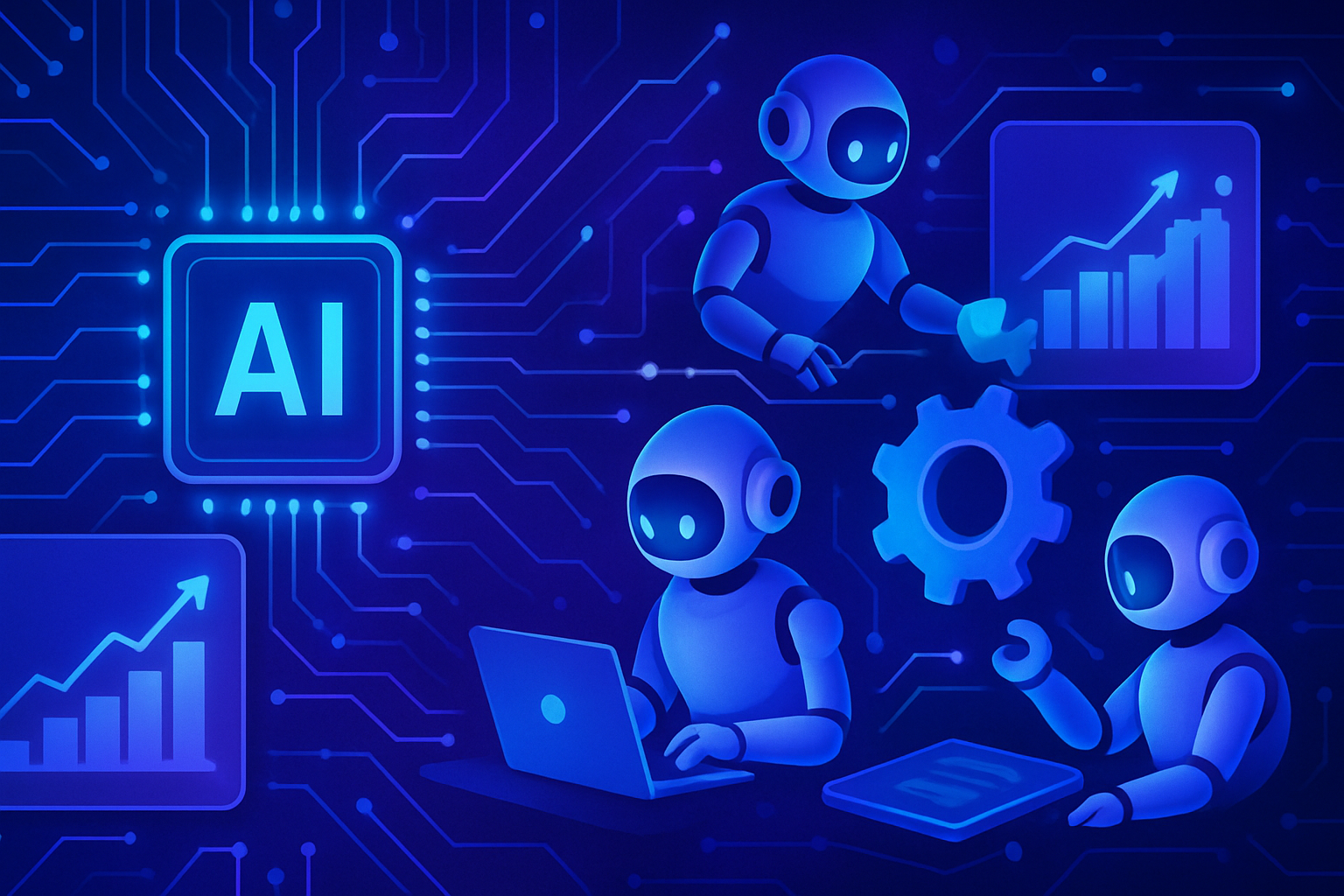The synergy between generative AI and automation reconfigures the operational dynamics of contemporary businesses. Optimizing processes thus becomes a strategic imperative, at the heart of managerial concerns. The capabilities of advanced technologies transcend traditional methods, enhancing productivity and accuracy.
The quest for excellence requires the integration of innovative solutions, allowing to reduce costs and minimize human errors. Generative artificial intelligence, with its ability to process vast amounts of data, facilitates the automation of repetitive tasks, freeing teams from mundane activities. This transition presents an unparalleled opportunity to reinvent business process management by leveraging the new frontiers of technology.
Generative artificial intelligence: a vector of automation
The rise of generative artificial intelligence reconfigures business processes. With its ability to produce varied content, this technology embodies a significant opportunity in the field of automation. Many sectors benefit from unprecedented optimization of their operations.
Benefits of generative AI in process optimization
Companies integrate generative AI solutions to refine their operational efficiency. These tools automate repetitive tasks, allowing employees to focus on higher-value work. An evaluation of processes shows that many organizations already benefit from substantial gains.
Automated content creation
Generative AI facilitates the production of content such as texts, images, and sounds. Its potential lies in automating creation, thereby reducing the time needed to generate documents or marketing materials. Companies find that this mode of operation accelerates the time to market for new products.
Reduction of costs and human errors
By integrating artificial intelligence, companies limit their operational costs and minimize the risks of errors. The management of complex processes becomes easier, as deep learning algorithms can analyze data in real time. This development reduces labor needs and optimizes resource utilization.
Digital trust solutions and data security
The increasing digitization of operations requires digital trust solutions to secure sensitive information. Cryptographic and biometric authentication technologies play a crucial role in data protection. Constant vigilance is essential to prevent cyberattacks.
Access management and continuous monitoring
The management of access to information must be rigorous. Implementing a continuous monitoring system helps detect potential anomalies and protect critical data. These practices enhance the confidence of business partners and clients in the operations of companies.
Electronic invoicing: a strategic lever
The transition to electronic invoicing represents a growing legal obligation for companies. This change is not limited to compliance. Organizations seize this opportunity to modernize their financial operations and automate related administrative processes.
Transformation opportunity
Implementing electronic invoicing provides a conducive framework for organizational transformations. Companies develop systems that enable automated creation, sending, and reception of invoices, thus consolidating their process efficiency. Processing times are significantly reduced.
Digitalization of all processes
This shift to electronic invoicing serves as a springboard towards the global digitalization of operations. Companies discover that this new system extends to managing accounting documents and contracts. This process fosters an integrated approach, helping to centralize all operations.
Anticipating the future with AI
The integration of AI in document management appears as a key element of optimization. Companies must anticipate the evolution of these technologies. This development will not only allow them to remain competitive but also to increase their agility in addressing future challenges.
Proactive measures for adopting AI will help navigate the dynamic changes in the market, offering a strategic advantage. The economic landscape will compel companies to explore these innovations to capitalize on operational efficiency and safety.
Questions and answers regarding generative artificial intelligence and automation
What is generative artificial intelligence, and how is it used for automation?
Generative artificial intelligence is a technology that uses advanced algorithms to create content, such as texts or images, from existing data. In the context of automation, it allows for the optimization of repetitive tasks, thereby improving the efficiency of business processes.
How can generative artificial intelligence improve employee productivity?
By automating repetitive and time-consuming tasks, generative artificial intelligence frees up time for employees to focus on higher-value activities, which increases their overall productivity.
What types of business processes can benefit from the integration of generative artificial intelligence?
Processes such as document management, invoicing, data processing, and reporting can all benefit from automation through generative artificial intelligence, making these tasks faster and less prone to error.
Does the use of generative artificial intelligence pose security risks to data?
Yes, it is crucial to implement digital trust solutions to protect sensitive data when using generative artificial intelligence. This includes measures such as data encryption and strict access management.
How does the implementation of generative artificial intelligence impact a company’s operating costs?
By reducing human errors and automating processes, generative artificial intelligence can help a company significantly lower its operating costs, leading to better financial efficiency.
What are the best practices for integrating generative artificial intelligence into a company’s operations?
It is advisable to first assess existing processes to identify those most likely to benefit from generative AI. Then, it is important to ensure employee training and implement appropriate security measures during integration.
Is technical expertise necessary to use generative artificial intelligence in a company?
While technical expertise can be an asset, several generative artificial intelligence solutions are available in the form of user-friendly applications or platforms, allowing companies to get started without deep expertise.






